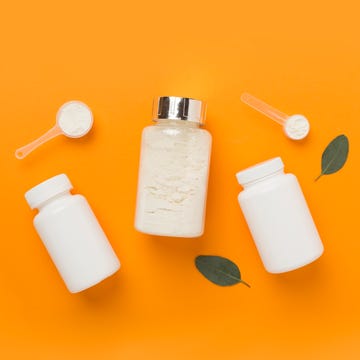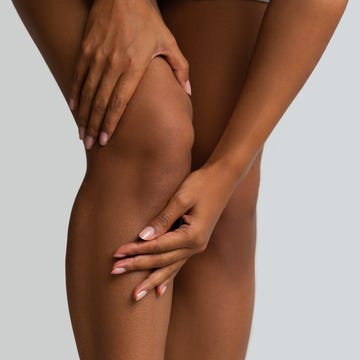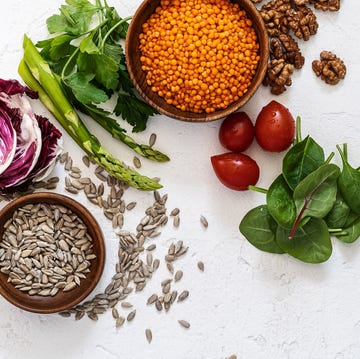You’ve enjoyed a delicious dinner, maybe with a glass or two of wine. You kick back on the sofa, feeling content – until suddenly, that all-too-familiar burning creeps up your chest. Oh no… heartburn has struck again.
It’s a miserable way to end an evening, and you’re far from alone. Julie Thompson, Information Manager at the charity Guts UK, says: ‘Heartburn is extremely common, affecting up to one in every four UK adults.’ The pain, she explains, is ‘located at the lowest end of the breastbone in the centre of the chest and often rises upwards and outwards.’ Heartburn often kicks in after eating, especially when lying down or bending over. Stress and eating too fast can also be factors.
And it can be alarming. Research by digestive remedy company Rennie shows nearly 30% of Brits mistake heartburn for a heart attack or stomach ulcer. One in four think it’s anxiety, while another quarter confuse it with IBS. Heartburn can be intense, disruptive and even rob you of sleep — with around a third of sufferers losing three to four hours’ rest each month.
What to read next
What is heartburn — and when is it a concern?
Despite the name, heartburn has nothing to do with your heart. It’s caused by acid reflux: when stomach acid escapes back into the oesophagus (the tube connecting your throat to your stomach). Normally, a sphincter or valve at the base of the oesophagus keeps acid out, but it can be overwhelmed. Some medications, like blood pressure tablets, can also relax this valve and make reflux more likely.
Most attacks are short-lived, but if you experience heartburn daily for three weeks or more, it could be a sign of gastro-oesophageal reflux disease (GORD). Left untreated, GORD can damage cells in the oesophagus, sometimes leading to Barrett’s oesophagus, which increases the risk of oesophageal cancer.
Sounds scary, but nutritionist Kim Pearson says that diet and lifestyle changes can make all the difference. ‘Studies show heartburn can improve or even vanish when people lose as little as 5 to 10% of their body weight, and eating the right foods not only helps with weight loss but, in many patients, can prevent attacks altogether.’
What to eat: the seven foods that help
Kim recommends loading your plate with:
- Lean proteins – chicken, turkey, fish, seafood and eggs. These digest more easily than the fatty or fried meats which trigger reflux.
- Vegetables – raw or cooked, depending on your tolerance. Nutrient-dense and high in fibre, they support gut health. Studies show people with fibre rich diets experience less heartburn.
- Non-citrus fruits – bananas, melons, pears and apples are less acidic and kinder to the digestive tract.
- Healthy fats – olive oil, nuts, seeds and avocado in moderation provide anti-inflammatory benefits without triggering reflux.
- Antioxidant-rich foods – berries, leafy greens and unroasted nuts can reduce inflammation and support digestion.
- Herbal teas – chamomile, ginger and liquorice root are soothing alternatives to coffee and strong black tea.
What not to eat:
- Processed and fried foods – heavy, fatty meals relax the oesophageal valve and slow digestion.
- Spicy dishes – chilli, hot sauces and curries can irritate the oesophagus.
- Acidic foods – tomatoes, citrus fruits and vinegar-based dressings may worsen reflux.
- Caffeinated drinks – coffee, cola and energy drinks relax the valve and increase acid. Fizzy drinks can also bloat the stomach, pushing acid upwards.
- Alcohol – irritates the stomach lining and encourages acid production while also relaxing the valve.
- Large or late meals – overfilling your stomach, eating quickly, or eating too close to bedtime makes reflux more likely. Aim to stop eating three to four hours before sleep.
- Your personal triggers – keep a diary of what you eat, how you feel and when symptoms strike. This can help you identify patterns and triggers unique to you.
The red flag signs you mustn‘t ignore
Most cases of heartburn can be managed with lifestyle tweaks and occasional pharmacy remedies, but some symptoms demand medical attention. One that can be missed – but shouldn’t be – if you regularly feel as if food is getting stuck in your oesophagus. This can be a sign of Barrett’s oesophagus or even a warning sign of oesophageal cancer. According to Guts UK, you also should see your GP if you experience any of the following:
- Unintentional weight loss or frequent vomiting.
- Heartburn most days for three weeks or more.
- Difficulty or pain when swallowing.
- Chronic cough or chest pain
- Ongoing indigestion, hiccups or an unpleasant sour taste in your mouth lasting three weeks or longer.
- Bloody vomit: whether bright red or like coffee grounds, this is a warning sign of severe reflux, ulcers or inflammation of the oesophagus.
Over the counter remedies include chewable tablets like Rennie to neutralise stomach acid and acid-reducing medications like Omeprazole. These can be helpful for the odd attack but Dr Dan Baumgardt, Senior Lecturer at the University of Bristol, says that taking them long term ‘can delay diagnosis and treatment of potentially serious conditions. So, if it’s a recurrent, persistent or severe problem, make an appointment with your GP instead. Catching problems early can make all the difference.’













